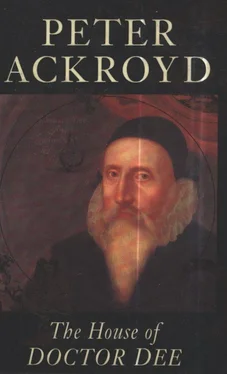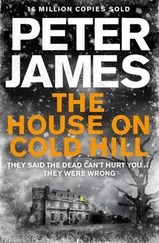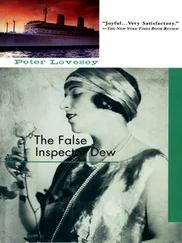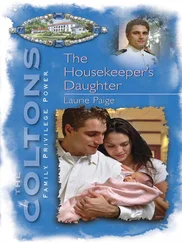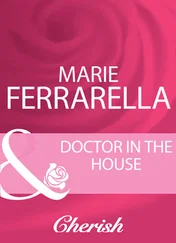Peter Ackroyd - The house of Doctor Dee
Здесь есть возможность читать онлайн «Peter Ackroyd - The house of Doctor Dee» весь текст электронной книги совершенно бесплатно (целиком полную версию без сокращений). В некоторых случаях можно слушать аудио, скачать через торрент в формате fb2 и присутствует краткое содержание. Город: London, Год выпуска: 1993, ISBN: 1993, Жанр: Историческая проза, на английском языке. Описание произведения, (предисловие) а так же отзывы посетителей доступны на портале библиотеки ЛибКат.
- Название:The house of Doctor Dee
- Автор:
- Жанр:
- Год:1993
- Город:London
- ISBN:9780241125007
- Рейтинг книги:5 / 5. Голосов: 1
-
Избранное:Добавить в избранное
- Отзывы:
-
Ваша оценка:
- 100
- 1
- 2
- 3
- 4
- 5
The house of Doctor Dee: краткое содержание, описание и аннотация
Предлагаем к чтению аннотацию, описание, краткое содержание или предисловие (зависит от того, что написал сам автор книги «The house of Doctor Dee»). Если вы не нашли необходимую информацию о книге — напишите в комментариях, мы постараемся отыскать её.
The house of Doctor Dee — читать онлайн бесплатно полную книгу (весь текст) целиком
Ниже представлен текст книги, разбитый по страницам. Система сохранения места последней прочитанной страницы, позволяет с удобством читать онлайн бесплатно книгу «The house of Doctor Dee», без необходимости каждый раз заново искать на чём Вы остановились. Поставьте закладку, и сможете в любой момент перейти на страницу, на которой закончили чтение.
Интервал:
Закладка:
'For the past thirty years continually,' I began, 'in diverse manners, and in various countries, with great pain, care and cost, I have sought to come by the best knowledge that anyone might attain in this world. I found at length that no man living was able to teach me those truths I desired and longed for, and so I concluded with myself that it was only in books and histories I might find the light for which I searched. I do not cast figures and conjure, as you so fondly imagine, but rather build upon the wisdom I have gained in all these years — ' I broke off for the moment, and drank more wine. 'But if this is to be a true chronicle, I must begin at the beginning.'
'That is the white to aim at,' he said. 'The tabula rasa .'
'My parents were honest and of no little esteem among their neighbours, my father being agent to the estate of my lord Gravenar. I was the last of my mother's children and, since the others were much more advanced in years, I stayed pretty close to myself (as they say) and played in the fields next to our ancient house in east Acton. There is no telling the wonderful diversity of children's natures, the spirit itself being combined from so many contrary influences, but I myself was of a shy disposition and haughty mind: I played alone always, shunning fellows as I would shun flies, and when my father began to teach me I fell naturally into the company of old books. I learned my Latin and my Greek even before my tenth year, and had no little delight in reciting from memory the verses of Ovid or the sentences of Tully as I roamed among the lanes and hedges of our parish. I would preach Eliot's Dictionary to the sheep and Lily's Grammar to the cows, and then run back to study Erasmus and Virgil at my own little table. Of course I shared my bed and my chamber with my two brothers (now both under the earth), but my parents understood my solitary disposition and gave me a chest, with lock and key, where I kept not only my apparel but also my texts. I had also a box of papers in my own writing, for my father had instructed me in the secretary hand, and there I concealed many verses and lessons of my own composition.
'I rose at five in the morning, my father calling out to me "Surgite! Surgite!" while I washed my face and hands very quickly. All of the household prayed together, and then he took me into his own chamber where I practised upon the lute: my father's care was always to increase my skill in music, and by daily exercise I grew more bold in singing and in playing upon instruments. At seven we came into the hall, where the table was already laden with meat and bread and ale (in those days called the angel's food) for our breakfast; after the meal was concluded I began my lessons in grammar, verse extempore, construction, translation and suchlike. Horace and Terence were my playfellows, though even then I had a true interest in the history of my own country, and from these early years I was the scholar and never the gamester.
'But soon enough it was time to rise into another sphere, and I was in November anno 1542 sent by my father to the university of Cambridge, there to begin with logic and so to proceed in the learning of good arts and sciences. I was then somewhat above fifteen years old, as being born anno 1527 July 13 —'
'Your birth,' Bartholomew Gray said very suddenly, 'is out of its place, and should have come at the beginning of your discourse. Ordering, as well as inventing, is true argument of a fine wit. Surely so premature a scholar should know that?'
I ignored the coxcomb, and continued with my theme. 'For the most part of these years I was so vehemently bent to studies that I inviolably kept this order — only to sleep four hours every night, to allow for meat and drink two hours every day, and of the other eighteen hours all (except the time of divine service) to be spent in my studies and learning. I had begun there with logic, and so I read Aristotle his De sophisticis elenchis and his Topic as well as his Analytica Prioria and Analytica Posteriora ; but my thirst for knowledge was so great that I soon found myself bent towards other learning as towards a glorious light that could never be extinguished, no, nor even dimmed. I cared nothing at all for the lewd pastimes of my college fellows and found no comfort in banqueting and whoring, in dicing and in carding, in dancing and in bear-baiting, in bowling and in shooting, and other suchlike trifles of the town. Yet though I had nothing to do with dice or with primero, I did have a chess-board with a little bag of leather for my men: these I would advance from square to square, reminding myself of my own history up to that time. I knew then, as I picked up my ivory pieces and stroked them a little with my forefinger, that monarchs and bishops would be as nothing to one who could predict their movements.
'After seven years I had attained my Master of Arts and, presently leaving the university, I went to London in order to follow my studies philosophical and mathematical. I had heard by report of a poor studious gentleman, by name Ferdinand Griffen, who had for many years past been buried deep in his rare studies and who (it was said by those knowing my own course of learning) would teach me the use of the astrolabe and the astronomer's staff as a proper continuance of my exploits in geometry and arithmetic. He lived in a rambling tenement in the Bishop of London's rents, in a court near the waterside just by St Andrew's Hill —'
'I know it,' he said. 'By the glassworks on Addle Hill.'
'A little westward from there.' I refreshed myself by taking some more wine.
'I came to him on midsummer's day in the year 1549, and found him working among his globes and vessels with the nimbleness of an apprentice. He greeted me with bright words, having expected my coming after several learned letters had passed between us, and pretty soon he displayed to me certain rare and exquisitely made instruments upon which (as he told me) he had bestowed all his life and fortune — among which was one strong quadrant of five-foot diameter, an excellent radius astronomicus which had its staff and cross very curiously divided in equal parts, a fair astrolabe and a great globe of metal. So it was that Ferdinand Griffen became my good master and with him I began my astronomical observations in earnest, all the time working with those very fine and very apt instruments which he taught me how to use carefully and circumspectly. We began observations, many to the hour and minute, of the heavenly influences and operations actual in this elemental portion of the world —'
At which point I broke off, fearing to say too much to one who was not practised in these arts, and in my confusion drank my fill of wine before continuing along another path. 'We were so close to the waterside that we would take our quadrant from his rambling lodgings down Water Lane to Blackfriars Stairs where, among the barges and the herring buses, we called out "Westward! Westward!" until one of the passing watermen noticed us. The wherry took us by the open fields beside Lambeth Marsh where, with the quadrant established upon firm earth, we would make various observations of the sun's progress. Sometimes, coming or going, we were close to falling into the Thames over head and ears with the cumbersomeness of the quadrant, but we always escaped on to dry ground. What instrument of the sun could be deluged with water? No, it could not be. There were sly citizens who were accustomed to call us sorcerers or magicians for all this measuring but it was all one to Ferdinand Griffen, and since that time I have taken my lesson from him in despising and condemning the ignorant multitude. On many other matters he also proved my good master, or should I say magus, with books, pamphlets, discourses, inventions and conclusions upon grave arts. You asked me if I raised the dead; no, I raise new life…' Again I broke off, fearing that I had fallen into too deep a vein, but Bartholomew Gray did nothing but pick at his teeth and call for more wine. 'Then,' I added, 'I went beyond the seas to speak and confer with some learned men.'
Читать дальшеИнтервал:
Закладка:
Похожие книги на «The house of Doctor Dee»
Представляем Вашему вниманию похожие книги на «The house of Doctor Dee» списком для выбора. Мы отобрали схожую по названию и смыслу литературу в надежде предоставить читателям больше вариантов отыскать новые, интересные, ещё непрочитанные произведения.
Обсуждение, отзывы о книге «The house of Doctor Dee» и просто собственные мнения читателей. Оставьте ваши комментарии, напишите, что Вы думаете о произведении, его смысле или главных героях. Укажите что конкретно понравилось, а что нет, и почему Вы так считаете.
